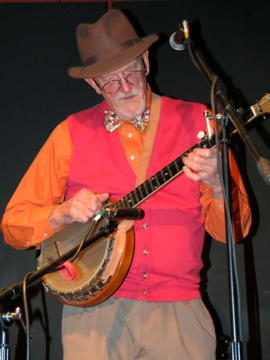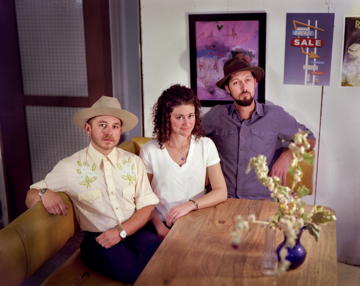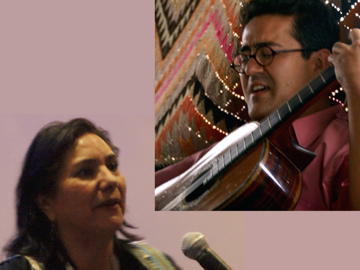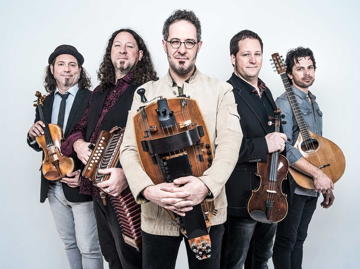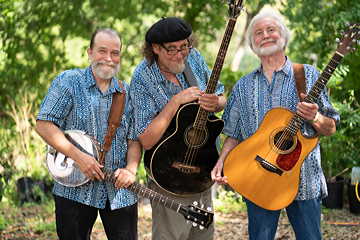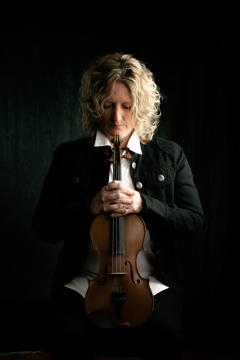Master Classes on Zoom June 8-13
FREE!!! All levels welcome!!!
Enrich your musical life with insights and techniques from some extraordinary musicians in these FREE master classes.
These classes are free, but admission is by registration only. To register, click on the registration link for each master class you wish to attend. You'll be asked for your name and email address, which we will not share, and which will be used to email you a personal link for the class, and (if the instructor chooses) handouts in advance.
The master class Zoom sessions will be hosted by Linda, William, and Mark of the Tompkins Corners Cultural Center in New York.
| Master Class Schedule | |
|---|---|
| Tuesday, 6/8 @ 7:00 pm | |
| Wayne Shrubsall - Banjo Types & Styles | |
| Who else do you know with a Ph.D. in Banjo? | |
| Wednesday, 6/9 @ 7:00 pm | |
| Stillhouse Junkies - Arranging for an Ensemble | |
| Telluride Bluegrass finalists share their formulas for success | |
| Thursday, 6/10 @ 7:00 pm | |
| David Garcia & Brenda Romero - Inditas and other NM narrative ballad genres | |
| Learn about Inditas -- women's songs -- and other NM Hispanic musical traditions | |
| Friday, 6/11 @ 7:00 pm | |
| Le Vent Du Nord - TBD | |
| A leading force in Quebec’s progressive francophone folk movement | |
| Saturday, 6/12 @ 3:00 pm | |
| The Limeliters (Andy Corwin, Steve Brooks and Daniel Boling) - Songwriting | |
| Songs, anecdotes and perspectives from these three unique artists | |
| Sunday, 6/13 @ 3:00 pm | |
| Deanie Richardson - Bluegrass Fiddle | |
| 2020 International Bluegrass Music Association's Fiddle Player of the Year | |
Wayne Shrubsall probably knows everything there is about the banjo. In the 1990s he spent two-and-a-half years researching the instrument for his Ph.D. dissertation at the University of New Mexico. He studied and wrote about its development, different styles of playing and banjo stereotypes. Teaching is what he does. Playing the banjo is what he loves.
In this master class, Wayne will play each banjo style on a different type of banjo. He will demonstrate banjo types and styles played by:
- "Minstrel" players on a fretless five-string banjo
- Gilded Age players on a nylon-string fretted banjo
- Clawhammer and related folk styles on steel-string banjo
- Traditional Jazz styles played with a flat pick (or plectrum)on four-string banjo
- Basic bluegrass banjo style a la Earl Scruggs and Bill Keith.
Bio:
Wayne Shrubsall was born and raised in Indiana. He has played banjo and other instruments for over 70 years. In New Mexico, he was banjoist with the Big River Boys, Elliott's Ramblers, the Adobe Brothers, and Steve Smith and Hard Road. Wayne has written many articles and analyses for the Banjo Newsletter. Wayne plays and teaches stroke (downpicking), guitar (tunes played in three or more fingers), frailing, and clawhammer banjos and styles, and plectrum banjo in Dixieland and traditional jazz. These are the points he will demonstrate in the workshop.
Stillhouse Junkies:
Arranging for an Ensemble
Wednesday, June 9 at 8:00 PM
Register for this Master Class
Wondering how to spice up your band’s repertoire, refresh an old song, or tackle a new one? Learn the ins and outs of arranging for an ensemble from acclaimed Colorado band Stillhouse Junkies. The Durango-based trio will talk attendees through the initial building blocks of intro, verse, chorus, bridge, breaks, and outro, creating dynamic, attention-grabbing arrangements using principles that can be applied to any style of music or type of song. The band will demonstrate with their own original compositions, covers, and traditional songs.
Topics to be covered include:
- Learn how to establish flow and tell a story across a composition with instrumental layering.
- Melodic fills
- Volume and tempo changes
- Interlocking rhythm parts
Bio
Born in a distillery in Durango, CO, two-time Telluride Bluegrass band contest finalists Stillhouse Junkies play a delirious, head-spinning mixture of original roots, blues, funk, swing, and bluegrass music. With all three band members sharing lead vocal and songwriting duties, the Junkies conjure a wide range of tonal landscapes that pay tribute to the iconic sounds of Gillian Welch, the Allman Brothers, Tim O'Brien, the Wood Brothers, John Hiatt, and countless others while breaking new musical ground with their genre-bending original material. Stillhouse Junkies are proud to be official Grey Fox Bluegrass Festival and 2020 IBMA World of Bluegrass showcase artists.
For more info: stillhousejunkies.com
David García & Brenda Romero:
Inditas and other NM narrative ballad genres
Thursday, June 10 at 7:00 PM
Register for this Master Class
Inditas are women's songs shared by everyone. They include narrative ballads, memorials, devotional hymns, and even social dances. They are intercultural and Indo-Hispano by nature and include musical elements of both cultures. It is said that Inditas are Nuevo México's greatest gift to the traditional music of the Hispanic world.
This year, as part of the (virtual) Albuquerque Folk Festival, David Garcia and Brenda Romero will be offering a master class workshop on Inditas and other New Mexico narrative ballad genres.
Topics to be covered include:
- recovering historical narrative ballads of New Mexico
- a focus on ballads genres of the New Mexico Indita, the Romance, and the Corrido
- we will talk about intercultural contexts and history of this music and demonstrate vocal styles and instrumentation of these genres.
- we will also model how musicians often do archival and ethnographic research, a tool to better incorporate storytelling into their performances.
Bio:
David F. García is from the northern New Mexican community of El Guache and holds a PhD in Anthropology from the University of Texas, Austin. As an anthropologist of agriculture, foodways, and acequia water management in northern New Mexico, García relates how ways of speaking and conviviality are vital for the cultural survival of Mexican-American communities.
Aside from his academic work, García uses music as an instrument of praxis for memory and advocacy as well as to "dar segunda voz" behind those doing the important work in our communities. His musical repertoire includes songs drawn from local participation in familial celebrations and funerals to nationwide tours with the late Al Hurricane and El Gringo. García writes and sings corridos, coplas y canciones, and décimas inspired by local movements for social justice. As the violinist for the Alcalde Matachines, Garcia has served for twenty-two years as an integral and essential part of the community danza. In addition, David has played with many local groups, including "Los de Río Arriba" – a music collective led by Arturo Delgado, a composer who has given voice to the experience of Mexican immigrants in New Mexico for the past fifteen years. Garcia has taken music as a practice of sanacion into diverse spaces such as nursing homes, pre-schools, as well as ICE detention centers. It has been an honor for García to have the opportunity to be preparing a new record with Dr. Brenda M. Romero during the last year.
Brenda M. Romero, Professor Emerita, founding Coordinator of Ethnomusicology at the University of Colorado, Boulder; holds a PhD in Ethnomusicology from the University of California, Los Angeles, and BMus and MMus in Music Theory and Composition from the University of New Mexico. She has worked extensively on Matachines music, dance and other genres that reflect Spanish and Native American transculturation. She conducted fieldwork on matachines traditions in Mexico as Fulbright García-Robles Scholar in 2000-01 and from January to July 2011 as Fulbright Colombia Scholar, where she also taught the first musicology course at the Pontificia Universidad Javeriana, Bogotá. She facilitated and served as Program Chair for the 2009 Society for Ethnomusicology Annual Meeting in Mexico City. She performed as Matachina violinist for the Pueblo of Jemez between 1989 – 98 and trained her youthful successor; she received the 2005 Society for American Music’s “Sight and Sound” subvention toward her 2008 CD, Canciones de mis patrias: Songs of My Homelands, Early New Mexican Folk Songs. She has collaborated for the past eight years with ethnochoreologists at the Benemérita Universidad Autónoma de Puebla, most recently on fieldwork on matachines in Sonora and Aguascalientes, Mexico, and with Dr. Norma E. Cantú on borderlands matachines, as part of Mexican government-funded field studies. She is author of numerous chapters, articles, and reviews; coeditor of Dancing across Borders: Danzas y bailes mexicanos (University of Illinois Press, 2009); and is currently completing a book, Matachines Transfronterizos, Warriors for Peace at the Borderlands (University of Illinois Press, forthcoming). Romero’s creative work includes classical music composition in contemporary styles, and regional performance collaborations with extraordinary New Mexican musician / anthropologist David F. García. As El Dueto Brenda y David, they recently received a modest grant from the Northern Rio Grande National Heritage Area to complete their compilation recording (by noted recordist Jack Loeffler) of New Mexican music as they merge forms, tonadas, and voices and lessons of the past with the present in song.
Nicolas Boulerice and Olivier Demers of Le Vent Du Nord:
Introduction to Québécois Music
Friday, June 11 at 7:00 PM
Register for this Master Class
Le Vent du Nord is a folk band from the French-speaking province of Québec, Canada. Québécois folk music contains Celtic and French influences that are evident in Le Vent du Nord’s catchy melodies and playful instrumentation. They play a mix of Québécois standards and original songs that showcase many traditional folk instruments. Members of the group Nicolas Boulerice and Olivier Demers will present this Masterclass and introduce you to Québécois music.
Topics to be covered include:
- Origin of Québécois music
- The defining feature of Québécois music – Podorythmie - a form of percussion where a musician taps her feet on a floor or wooden box to create a lively, driving beat behind the music. The musician will often sit and tap her feet while playing another instrument, such as the fiddle.
- Traditional instruments played in Québécois music
- Repertoire
- Québécois music’s influence in Cajun music
Bio:
Since its inception in August 2002, Le Vent du Nord has enjoyed meteoric success, performing well over 2,000 concerts over 4 continents and racking up several prestigious awards, including a Grand Prix du Disque Charles Cros, two Junos (Canada’s Grammys), a Félix at ADISQ, a Canadian Folk Music Award, and “Artist of the Year” at Folk Alliance Annual Gala.
The group exhibits great finesse and flexibility, appearing regularly on Canadian, American, French, and UK television and radio, and participating in a wide variety of special musical projects. They’ve collaborated and performed with a diverse range of artists including: Harry Manx, Väsen, Dervish, The Chieftains, Breton musical pioneer Yann-Fañch Kemener, Québecois roots legend and master storyteller Michel Faubert, the Scottish folk band Breabach, singer Julie Fowlis, and the trans-Mediterranean ensemble Constantinople.
On stage these friends create intense, joyful and dynamic live performances that expand the bounds of tradition in striking global directions. This is the modern sound of tradition, a music of the here and now.
For more info: leventdunord.com/en/
The Limeliters
(Andy Corwin, Steve Brooks and Daniel Boling):
Songwriting
Saturday, June 12 at 3:00 PM
Register for this Master Class
Since 1959, The Limeliters have been delighting audiences worldwide with their soaring vocal blend and original take on traditional Americana folk music. These days, in addition to their performance skills, all of the current members of the band (Andy Corwin, Steve Brooks and Daniel Boling) are also accomplished, award-winning songwriters in their own right.
This year, as part of the (virtual) Albuquerque Folk Festival, The Limeliters will be offering a workshop on songwriting, featuring the original songs, anecdotes and perspectives of these three unique artists.
Topics to be covered include:
- Song Craft: Analyzing the manner in which rhythm, melody, harmony, and lyrics work together to create memorable songs.
- Where do ideas come from? (inspiration versus craft)
- Is Rhyme important?
- Why is the verse/chorus format so durable? (And the pros/cons of other formats)
- What is meant by a "Hook" line?
- Conversational phrasing and how to fit words to melody
- Writing and arranging songs for The Limeliters to perform
For more info: www.limeliters.com
Deanie Richardson has been a fiddler in Nashville and all over the world for the past 35 years. Her employers have included Patty Loveless, Vince Gill, the world-renown Chieftains, Holly Dunn, and recently she had the honor of going out on Bob Seger's U.S tour. For the year 2020, Deanie was awarded the International Bluegrass Music Association's Fiddle Player of the Year. The band which she help to cofound, Sister Sadie, also won Vocal Group of the Year and was the first all-female band to win Entertainer of the Year in the IBMA's history. She was the most awarded artist at the 2020 IBMA awards, winning four awards. When she is not on the road, she is teaching students of all ages, to play fiddle, mandolin, and guitar.
Topics to be covered include:
- Learn how to build creative, tasteful solos to your favorite bluegrass standards.
- Basic Vibrato
- How to clean up your playing and get rid of nasty, unwanted noises
- Learn a new fiddle tune
- Exercises to sync up your bow and fingers and to strengthen your fourth finger
Bio:
Deanie Richardson grew up backstage at the Grand Ole Opry with the likes of Howdy Forrester, Roy Acuff and many of the bluegrass and country music greats. She continues to work there on rotation as house band fiddler.
Deanie believes in hard work, and playing hard. Her latest project title which reflects her life's motto is set for release in 2018 as well. "Love Hard Work Hard Play Hard" features Patty Loveless, Ronnie Bowman, and Dale Ann Bradley, not to mention 3 original songs written by Deanie herself. It is a project close to her heart and encompasses pieces, friendships, and reflections from her 37-year career as a musician in Nashville and around the world.
Deanie has several titles under her belt, entering and winning numerous fiddle contests before she started playing bluegrass or bluegrass festivals. She has been nominated for the Academy of Country Music Awards Top Fiddle Player of the Year for 2010 putting her up against Stuart Duncan, a fellow fiddler she admires greatly. She includes Stuart along with Mark O' Connor, Howdy Forrester, Kenny Baker and Tommy Jackson in the list of musicians that have influenced her playing over the years.
For more info: deanierichardson.com

